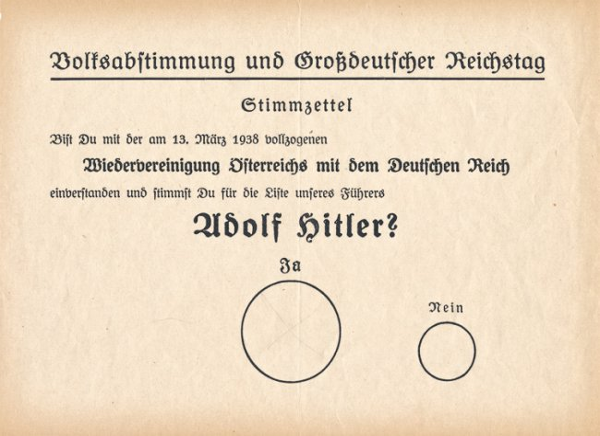I attended UKiCE’s webinar on referendums. It is available on You Tube, or at sli.do and they said in publicising the event, “The tumult that followed 2016 led many politicians and commentators to conclude referendums and UK politics don’t mix. The 2019 Conservative manifesto explicitly pledged not to waste time on more ‘acrimonious referendums’. But are they really off the agenda? Debates in Scotland and Northern Ireland would suggest otherwise. Contention continues to surround state-wide and national votes, whether on Scottish Independence or Net Zero, this panel discusses whether there is still space for referendums and direct democracy in the UK.” This blog article, highlights some contributions and adds some of my thoughts; they’ll be please to know I shall be having a think.
The panel consisted of its Chair: Joelle Grogan, UKICE, Joseph Ward, University of Sheffield, Matt Qvortrup, of Coventry University and Meg Russell of University College London’s constitutional unit.
Russel’s first contributions criticised the 2016 referendum on the grounds that there was no plan for parliament’s role after the vote. It’s an important part of Ms. Russell’s thinking.
Qvortrup argues that a referendum is an effective people’s veto which I think he thinks is a good thing. He also argues that it may be a useful tool when changing the rules.
Ward argues that the Brexit referendum was repurposed by some. The debate amongst academics and others of good faith is to seek to determine if referendums can play a role in democratic decision making. The 2016 referendum was designed to overrule parliament which it effectively did; this is why Russel’s thinking about the need for a plan and a common understanding of the role of the referendum in making policy and law.
They discussed, particularly in the light of the Irish referendum on abortion, the role that referendums can play in determining both politics i.e. governance, and policy. They argued that the Irish abortion referendum may have been called because of the constitution but was in effect a policy vote. It was noted that referendums are becoming more common at local government level; referendums are required if raising council tax above a certain threshold and required to change the governance model.
The panel considered questions of thresholds and super majorities. It was observed these were the most frequent reason for referenda to fail in countries other than the UK. Russell in one of her contributions stated that democracy needed more elements from citizens and the citizens assemblies is one way of achieving that. It fascinates me that academia is coming to the conclusion that collective discussion is necessary for effective decision making and yet the trade unions are regulated to prohibit such collective decision making; strike decisions and the election of senior officers and executive committees must now take place using individual postal ballots. These laws were not installed in order to improve the democracy of the unions, but designed to achieve a specific outcome, that have reduced militancy and weakened solidarity.
The question of information and knowledge amongst the electorate was considered, and it was felt that citizens assemblies were potentially an important way to build confidence in the process. A lack of confidence has been exacerbated by the fact that both EU referenda have been called for reasons of party management and not as exercises in democratic consultation.
Qvortrup stated that the election laws for the Brexit referendum had been adhered to, this is not correct. The vote leave campaign over spent hundreds of thousands of pounds in a breach so egregious that the High Court determined if the referendum had not been advisory they would have demanded it be rerun. Russell reinforced the need for effective regulation of referendums, especially with respect to social media. Those who are seriously addressing the question of secret campaigning and fake news have much to offer.
During the panel, both Ward and Russell made reference 2 the UCL constitution units Independent Commission on Referendums report. The landing page makes reference to a blog article on the constitution units website.
Looking at the UCL CU’s report on referendums, I need to reconsider my views. The report is clearly of the view that referenda can play a role in politics and ask people like me to raise my eyes.
I am of the view that Issues cannot be isolated; there are stories of some Scots voting for the UK to leave the EU because they thought that it would accelerate the support for Scottish Independence.
It is my view that referendums only polarise, and with a large electorate, a close vote will not obtain a loser’s consent; I therefore believe that referendums may need super-majorities, although why should no-change be embedded in this way.
In terms of mediating between sides of a debate, Parliaments can compromise; everyone’s second best might be more supported and thus more democratic than the choice between everyone’s first .
The panel’s arguments make me think about the role of Citizen’s assemblies, and timing of referenda and assemblies and thus their role in the process.
To conclude, here are two quotes from the UCL CU’s “Report of the Independent Commission on Referendums”
… referendums have an important role to play within the democratic system, but how they interact with other parts of that system is crucial. They must be viewed as co-existing alongside, rather than replacing, representative institutions. They can be useful tools for promoting citizen participation in decision-making, but they are not the only, or necessarily the best, way of doing so.
And
Wherever possible, a referendum should come at the end, not the beginning, of the decision-making process. It should be post-legislative, deciding whether legislation that has already passed through the relevant parliament or assembly should be implemented.
While the UK has what is in effect a unicameral legislature, with no legal checks and balances, elected by first past the post, I think that referendums are not the first question for democratic reformers.
It’s not possible to have a single vote amongst multiple options that is not gameable. i.e. that provides people with the motivation to vote for other than their first preference although in some cases, people have a dislike stronger than their preferences as it seems the Tories are about to find out. People such as this will always have difficulty in expressing their wishes in a voting system. See also Multiple choice voting systems by me, on my wiki.
…






